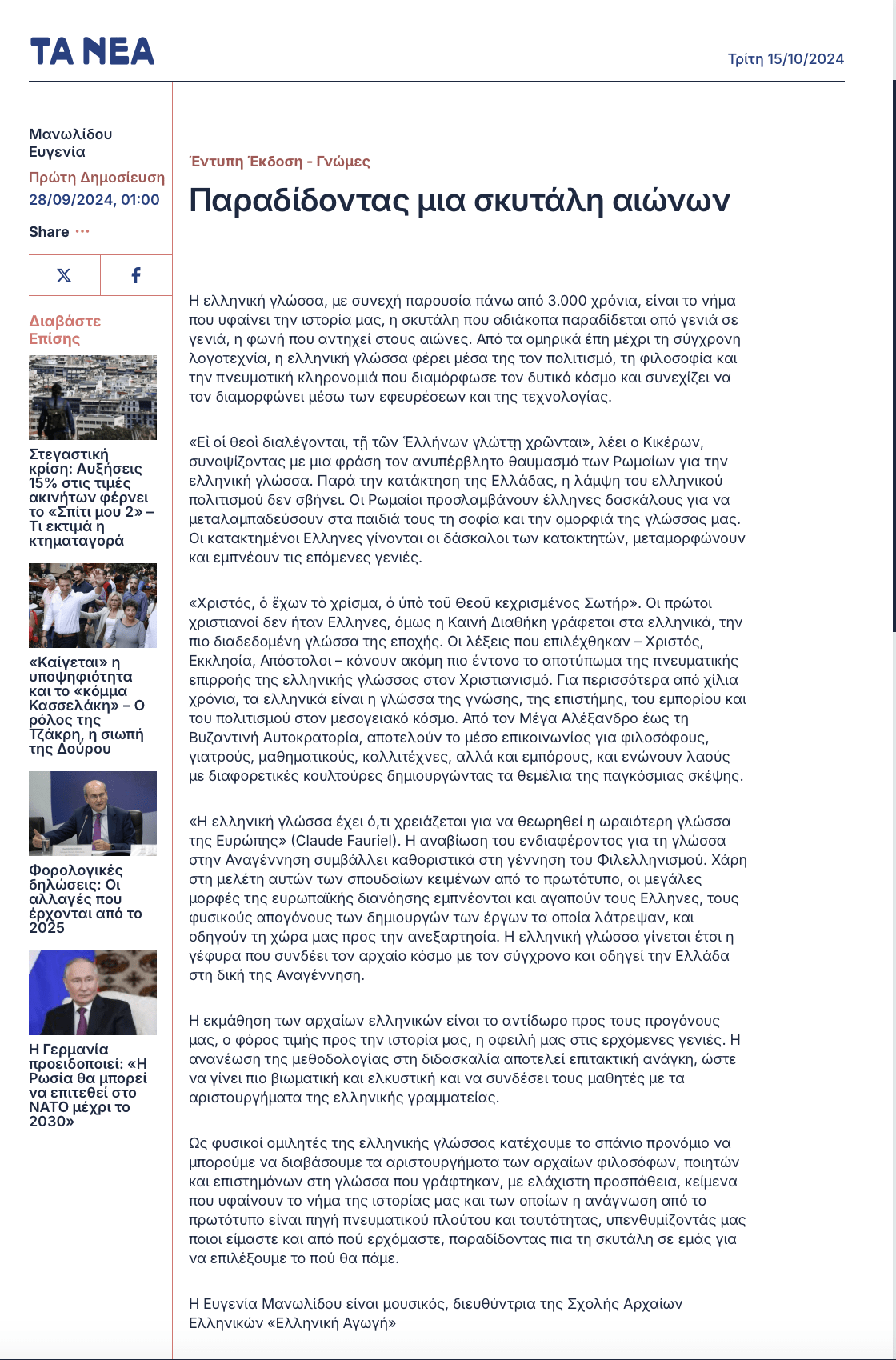the article was published in the newspaper “Ta Nea” on 15/10/2024

The Greek language, with a continuous presence for over 3,000 years, is the thread that weaves our history, the baton passed uninterruptedly from generation to generation, the voice echoing through the ages. From Homeric epics to modern literature, the Greek language carries within it the culture, philosophy, and intellectual heritage that shaped the Western world and continues to influence it through inventions and technology.
Cicero once said, ‘If the gods speak, they use the language of the Greeks,’ summarizing the Romans’ unparalleled admiration for the Greek language in a single phrase. Despite the conquest of Greece, the brilliance of Greek culture never fades. The Romans hire Greek teachers to pass on the wisdom and beauty of our language to their children. The conquered Greeks become the teachers of their conquerors, transforming and inspiring future generations.
‘Christ, the Anointed One, the one anointed by God as Savior.’ The first Christians were not Greek, yet the New Testament was written in Greek, the most widespread language of the time. The chosen words – Christ, Church, Apostles – all rooted in Greek, further highlight the profound spiritual influence of the Greek language on Christianity. For over a thousand years, Greek was the language of knowledge, science, commerce, and culture in the Mediterranean world. From Alexander the Great to the Byzantine Empire, it served as the medium of communication for philosophers, doctors, mathematicians, artists, and merchants, uniting peoples of different cultures and laying the foundations of global thought.
‘The Greek language has everything it needs to be considered the most beautiful language in Europe’ (Claude Fauriel). The Renaissance revival of interest in the language played a crucial role in the birth of Philhellenism. Thanks to the study of these great texts in their original form, the great minds of European thought were inspired by and loved the Greeks, the natural descendants of the creators of the works they admired. This admiration led to Greece’s independence. The Greek language thus became the bridge linking the ancient world to the modern, guiding Greece toward its own Renaissance.
Learning Ancient Greek is a gift to our ancestors, a tribute to our history, and a debt we owe to future generations. Renewing the teaching methodology is an urgent necessity to make it more experiential and engaging, connecting students to the masterpieces of Greek literature.
We, as Greeks and native speakers of the language, possess the rare privilege of being able to read the masterpieces of ancient philosophers, poets, and scientists in the language they were written, with minimal effort. These texts weave the thread of our history, and reading them in their original form is a source of intellectual wealth and identity. They remind us who we are and where we come from, now passing the baton to us to choose where we will go.
Eugenia Manolidou
Musician, Director of “Elliniki Agogi”, School of Ancient Greek
Published in the Saturday edition of the newspaper NEA on September 28th, 2024.
